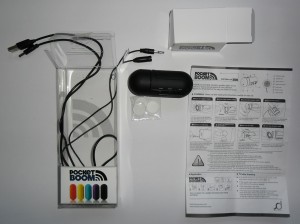When shopping online, there are loads of things to look out for, and loads of ways to get a better deal. In this article I hope to share some of the experience I have got from shopping online, and some of my tech knowledge in order to help you get a better deal – what you want, at a reasonable price.
The first thing to say is that what you are shopping for, is crucial to how to go about buying it.
Virtual Goods
If you are buying an online or ‘virtual’ good/service, then the key thing to check is that you are buying from a reputable firm. Checking the firm is reputable and reliable is key for all online shopping, but especially so if you are buying something virtual – e.g. a website, anti-virus software, access to a game, music etc.
There are a few ways you can go about checking if online firms are reputable. The first is to see if the firm exists in reality, do they have shops in the real world, or are they totally online? Firms with physical property are less likely to be fraudulent, as they are easy to find and locate. Totally online firms can be just as reputable, look at the likes of Play.com and Amazon.
 The second way to get an idea of whether a firm is reputable or not is to check their stats. Does the site have a good Alexa rank – top 500,000? If not, people may not be visiting the site for a reason: it has just been set up, and after a few quick cons will be gone. You can check the history of the site using the Way Back Machine for more info on its past.
The second way to get an idea of whether a firm is reputable or not is to check their stats. Does the site have a good Alexa rank – top 500,000? If not, people may not be visiting the site for a reason: it has just been set up, and after a few quick cons will be gone. You can check the history of the site using the Way Back Machine for more info on its past.
The third way is a much less reliable way, but can be useful to back up your decision. Try looking at the websites PageRank. If they have say a PageRank 3+ homepage, they are more likely to be legitimate than a site with all PageRank 0’s. People link to shop websites when they buy things and then review them, so shops should acquire PageRank. If they have no PageRank, they may still be legitimate, but check, as that may mean they have not been trading for long, therefore have just set up to scam, and will be shut down soon.
Finally are they a big name. Say you are buying anti-virus direct from the supplier. Most people have heard of the likes of Kaspersky, Sophos and Norton, but if the company is called something like ‘SpywareBeGoneSolutions’ then they are a lot less likely to sell you a good product, if any product at all.
 Finally, when checking that the firm you are going to buy from is going to give you the product(s) you want, watch the news, or research them on news sites! Is the firm about to go bust or being run by administrators? If so, buying from them may lead to you loosing your money!
Finally, when checking that the firm you are going to buy from is going to give you the product(s) you want, watch the news, or research them on news sites! Is the firm about to go bust or being run by administrators? If so, buying from them may lead to you loosing your money!
Services
If you are buying a service, such as a holiday, insurance or a meal at a restaurant, then there are loads of really useful sites that can help you, by giving you an incite into what others thought of that service.
Say for example you are buying a holiday, you can use websites like TripAdvisor.com to see if the place you are looking at staying at has positive reviews. If not, you can maybe choose somewhere else. Be careful though, as sometimes these sites can be misleading, as Jonny recently wrote about.
There are other websites too like MoneySavingExpert.com and Yelp, which can offer similar services for other things like insurance, banking, restaurants, shopping etc. MoneySavingExpert.com is especially worth a look, as aside from reviews, they can give really good advice, to help you save money when buying all sorts of things.
Products
The key to ensuring you get value for money and what you want when buying products online is to make sure you read what other people think about it. Reviews are really useful, and can help you determine which product is right for you.
Don’t be afraid to venture out of the companies website itself, and look for more reviews elsewhere online. Some firms will only publish the positive reviews they receive on their own site, in order to try to persuade more people to buy that product, from them.
A really important bit of advice is not to discount the high street, it can still be a very good place to buy things. Often things are cheaper online, however you can usually see and sometimes try products when in a shop, whereas online, all you have is pictures and possibly video.
Once you know the product is for you, make sure that you shop around. Find the best deal using price comparison sites like MoneySupermarket.com and PriceRunner.com.
Once you have your product and the shop, don’t forget to go to coupon sites to see if you can get an even better deal. Sites like MyVoucherCodes usually have some great discount offers, you just need to look.
To conclude
In summary, when shopping online, make sure that you are buying from someone reputable. Make sure the product or service is what you want. Check out other peoples reviews. Look for the best deal, and then finally don’t forget to check if there are any vouchers that could further slash the cost.
Hopefully these tips have been useful, good luck shopping online!





